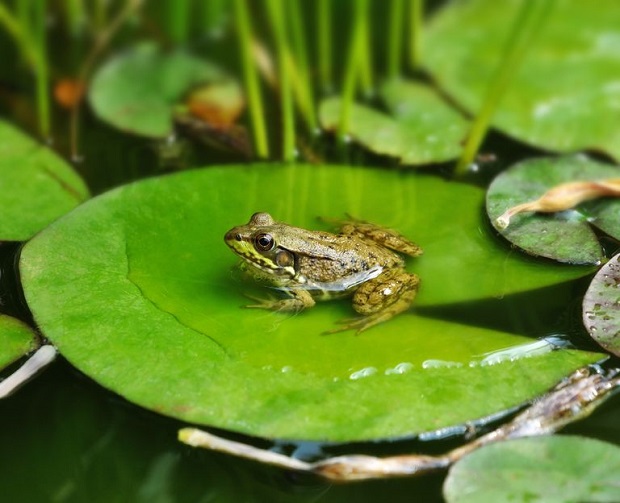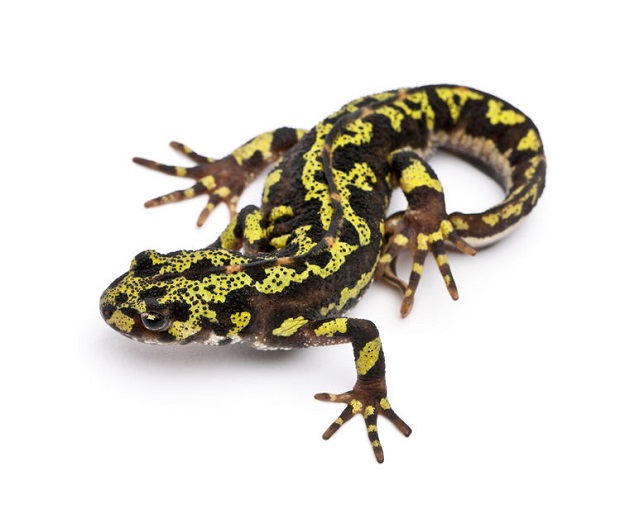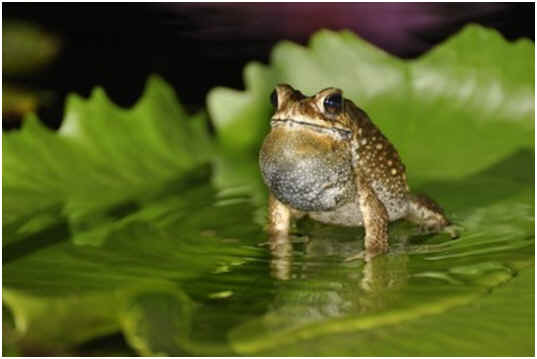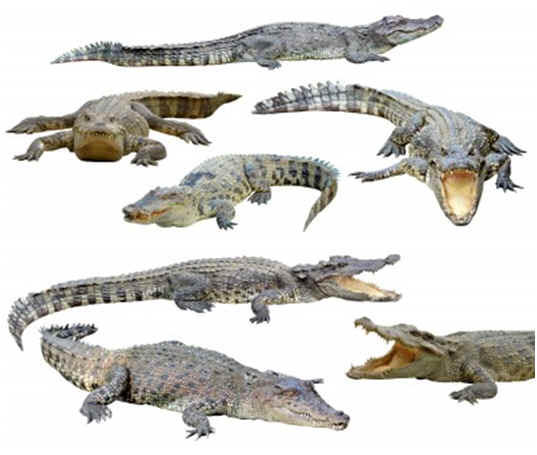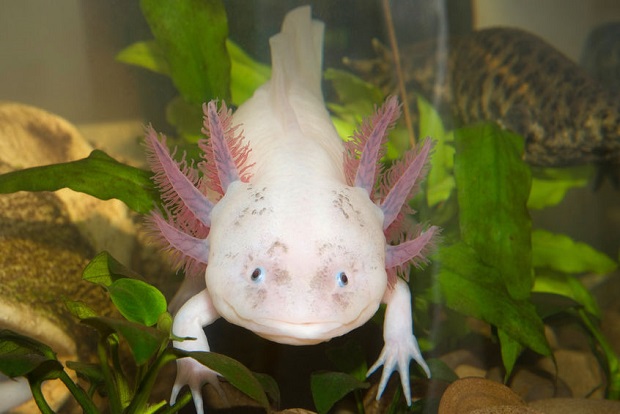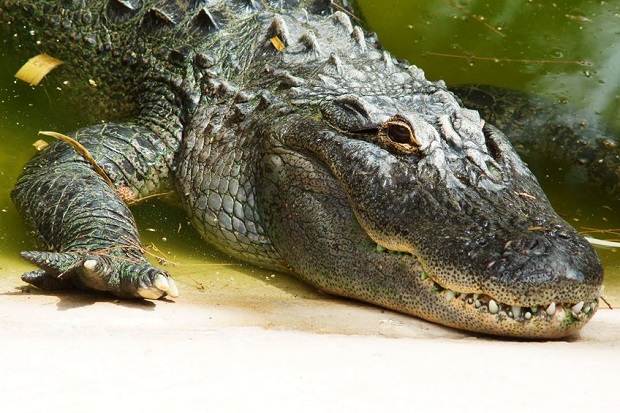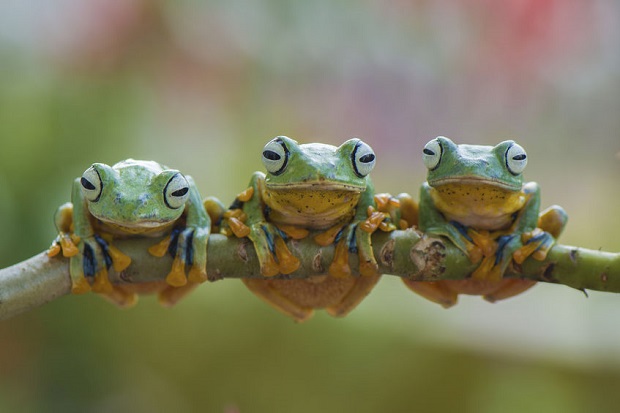
Are Frogs Reptiles?
Frogs are not reptiles. Frogs are amphibians. Although both share similar traits, such as having a vertebrate and being cold-blooded, the frog has all of the characteristics of an amphibian.
Why Is the Frog an Amphibian?
These are the traits belonging to frogs that classify them as amphibians:
- Amphibians’ lifecycle involves metamorphosis
- Amphibians have thin skin to allow for cutaneous respiration
- Amphibians fertilize eggs internally or externally, depending on the species
- Amphibians lay soft-shelled eggs in the water
Why is the Frog not a Reptile?
Reptiles share traits that amphibians do not. These are the traits that exclude the frog from being a reptile:
- Reptiles have hard, scaly skin
- Reptiles breathe with at least one lung
- Reptiles fertilize eggs internally
- Reptiles lay hard-shelled eggs that produce a smaller version of the adult (some bear young)
What Traits Do Frogs Share with Reptiles?
Two traits are similar in both the amphibian and the reptile. They are both vertebrates, and they are both cold-blooded. As a warm-blooded human, you can regulate your body temperature. Neither a frog nor an iguana, for example, is able to maintain its body temperature. Therefore, these creatures rely upon the environment to be cool or warm. The similarities end there, however.
Let’s Dig Deeper
Respiration Differences Between Reptiles and Amphibians
Frogs are equipped with thin, permeable skin that allows for the intake of oxygen and the expelling carbon dioxide. This form of respiration through the skin is called cutaneous respiration. When underwater, a frog relies solely on cutaneous respiration, pulling oxygen from the water through its thin skin. The frog also has lungs that it uses to take in oxygen from the air.
Reptiles, on the other hand, have hard, scaly skin that helps them to retain moisture but does not allow for oxygen intake. Reptiles rely solely on their lungs for respiration.
Reproductive Differences Between Reptiles and Amphibians
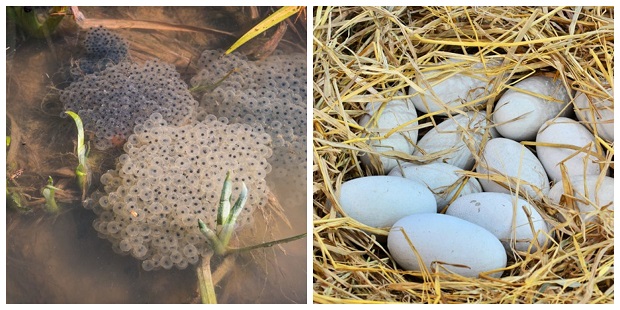
As an amphibian, a frog starts its life as an egg hatching in water. Frogs eventually move away from the water to live on land. Mature frogs return to wet areas to deposit their eggs. These eggs develop within the water, where they have soft shells. A frog lays a large number of eggs, too, because many of them will not survive the process. Starting with more eggs ensures that more tadpoles hatch.
Because reptiles have hard eggs, they typically hatch on land and not in water. You may have seen turtle or snake eggs in a nest. Reptile mothers typically don’t lay as many eggs as frogs and other amphibians.
Lifecycle Differences Between Reptiles and Amphibians
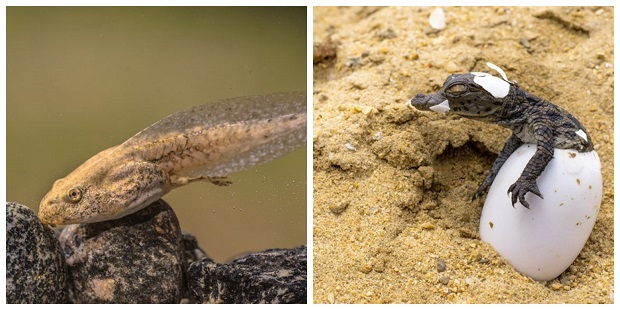
Frogs have a distinct life cycle that requires a metamorphosis between stages. Frog eggs hatch into tadpoles that breathe through gills, frogs then grow legs, and their tails transform until a fully developed frog appears with the ability to breathe through the lungs.
In comparison, reptiles hatch from eggs into smaller versions of the adult. The major metamorphosis isn’t something that reptiles experience.
Resources
Brown University – Engineering Department
“Frog Respiration”
https://www.brown.edu/Departments/Engineering/Courses/En123/MuscleExp/Frog%20Respiration.htm
LibreTexts – Biology
“Amphibian Evolution and Ecology”
https://bio.libretexts.org/Bookshelves/Introductory_and_General_Biology/Book%3A_Introductory_Biology_(CK-12)/12%3A_Vertebrates/12.16%3A_Reptile_Structure_and_Function
University of Michigan – BioKids
“Frogs, Salamanders, and Caecilians”
http://www.biokids.umich.edu/critters/Amphibia/
LibreTexts – Biology
“Reptile Reproduction”
https://bio.libretexts.org/Bookshelves/Introductory_and_General_Biology/Book%3A_Introductory_Biology_(CK-12)/12%3A_Vertebrates/12.17%3A_Reptile_Reproduction
Study.com
“Frog Life Cycle Lesson for Kids”
https://study.com/academy/lesson/frog-life-cycle-lesson-for-kids.html
